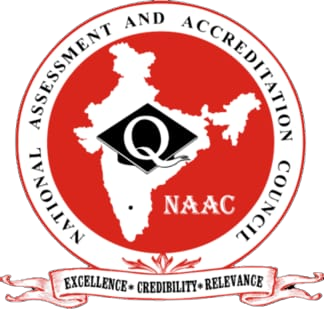
Civil Engineering Colleges in Chennai
The Department of Civil Engineering was established in the year 2011 with well qualified faculty members experienced both in academics and industry with an intake of 60. The department was started due to the great need of Quality Civil Engineers for sustainable and holistic development of the society and the nation. Later, in the year 2013, the department has been expanded with an increased intake of 120. The department was certified with ISO. The college has been accredited by NAAC with B++ Grade.
- Started in the Academic Year 2011-2012
- Offers “B. E. Civil Engineering”
- Intake: 60
- AICTE Approved & Anna University Affiliated
- ISO 9001: 2015 Certified
- Accredited by NAAC with B++
Vision:
- Department of Civil Engineering of Dhaanish Ahmed College of Engineering is aspiring to be a leader in facilitating holistic development of Civil Engineers through academic programmes, training activities, research & development activities and extension activities with a perspective of sustainability and ensuring the sustainable development of the nation.
Mission:
- To blossom into a renowned department in the college that aspires to be an internationally renowned academic institution.
- To be a leader in facilitating empowerment of youth through quality education, training and, research activities and ensuring development of professional leadership skills.
- To provide excellent teaching and research ambience for developing competent, cultured and responsible human resources in the field of civil engineering.
- To develop soft skills, leadership qualities, professional ethics and sustainability approaches in the field of civil engineering.
- To facilitate students to create innovative design solutions with realistic constraints and to handle projects individually.
- To network with global Industries and Research Organizations in the field of Civil Engineering for continued growth of the department.
- To be a significant contributor for the knowledge base through innovations in scientific enquiry and applied research activities.
Programme Educational Objectives (PEOs):
- To prepare students for successful careers in Civil Engineering field that meets the needs of Indian and multinational companies.
- To develop the confidence and ability among students to synthesize data and technical concepts and thereby apply it in real world problems.
- To develop students to use modern techniques, skill and mathematical engineering tools for solving problems in Civil Engineering.
- To provide students with a sound foundation in mathematical, scientific and engineering fundamentals necessary to formulate, solve and analyse engineering problems and to prepare them for graduate studies.
- To promote students to work collaboratively on multi-disciplinary projects and make them engage in lifelong learning process throughout their professional life.
Programme Outcomes (POs):
On successful completion of the programme,
- Graduates will demonstrate knowledge of mathematics, science and engineering.
- Graduates will demonstrate an ability to identify, formulate and solve engineering problems.
- Graduate will demonstrate an ability to design and conduct experiments, analyze and interpret data.
- Graduates will demonstrate an ability to design a system, component or process as per needs and specifications.
- Graduates will demonstrate an ability to visualize and work on laboratory and multidisciplinary tasks.
- Graduate will demonstrate skills to use modern engineering tools, software and equipment to analyze problems.
- Graduates will demonstrate knowledge of professional and ethical responsibilities.
- Graduate will be able to communicate effectively in both verbal and written form.
- Graduate will show the understanding of impact of engineering solutions on the society and also will be aware of contemporary issues.
- Graduate will develop confidence for self education and ability for life-long learning.
Civil Engineering is the oldest branch of engineering which is growing right from the Stone Age Civilization. It is meant for serving the Civilians / Public for the development and maintenance of infrastructure & facilities for the built environment like residential shelters & industrial facilities; Surveying, Remote sensing & GIS and Land Management; Management of natural resources; Water for Drinking and Irrigation; Wastewater management, Air pollution & Solid waste management; Transportation systems like roadways, railways, airways and waterways; geotechnical engineering; automation & robotic systems for development and management of infrastructure and built environment and associated facilities for public. It is the second-oldest engineering discipline after military engineering and it is defined to distinguish non-military engineering from military engineering. Civil engineering takes place in the public sector from municipal through to national governments, and in the private sector from individual homeowners through to international companies.
Civil engineers build the world’s infrastructure. In doing so, they quietly shape the history of nations around the world. Most people cannot imagine life without the contributions of civil engineers to the public’s health, safety and standard of living. Only by exploring civil engineering’s influence in shaping the world we know today, can we creatively envision the progress of our tomorrows. American Society of Civil Engineering (ASCE) defines Civil Engineering as the profession in which knowledge of mathematical and physical sciences gained by study, experience and practice is applied with judgment to develop ways to utilize economically the materials and forces of nature for the progressive well being of man.
Our dedicated faculty members always help the students to invoke and develop their creative and innovative thinking in applications by using advanced techniques & technologies and state-of-the-art software in civil engineering fields like sustainable building materials, surveying, environmental engineering, water resources engineering, transportation engineering, concrete & structural engineering and in the emerging fields like Sustainable Habitat and Automation & Robotics in Civil Engineering.

 For Admission 91 9962022222
For Admission 91 9962022222














